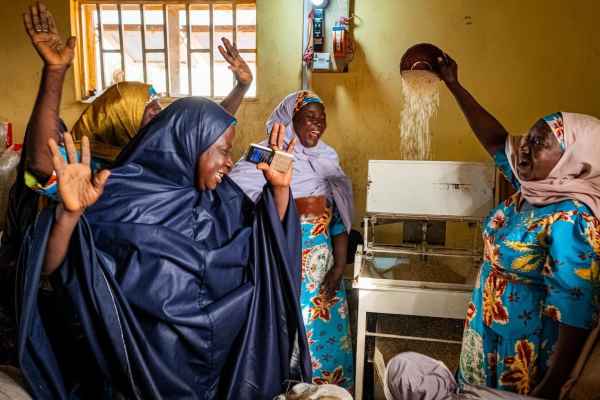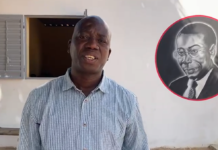Sweden, through the Swedish International Development Cooperation Agency (Sida), has pledged funds to help avert a potential food crisis in some of the world’s most vulnerable rural communities in the wake of COVID-19, the UN’s International Fund for Agricultural Development (IFAD) announced today.
SEK 50 million (approximately US$5.7 million) will be committed to IFAD’s Rural Poor Stimulus Facility which was launched in April by IFAD’s Goodwill Ambassadors, Idris and Sabrina Elba. The Facility is supporting small-scale farmers and rural producers to continue to grow and sell food despite COVID-19 restrictions in movement and trade, by providing timely access to agricultural inputs, information, markets and liquidity.
“We would like to thank Sweden for its commitment to achieving a world without poverty and hunger,” said Gilbert F. Houngbo, President of IFAD. “The funds will assist rural producers, particularly women, to continue making food available on the markets, ensuring that the COVID-19 pandemic does not escalate into a lingering food crisis.”
“In the midst of the pandemic, we need to support sustainable food production to reduce poverty and achieve Zero Hunger by 2030. Small-scale farmers are in the frontline and they need assistance now,” said Carin Jämtin, Sida’s Director-General.
Sweden also committed SEK 40 million (approximately $4.6 million) to IFAD’s Financing Facility for Remittances. This will help maximize the impact of remittances and diaspora investment on rural development, accelerate the transformation of remittance markets through new technologies, and promote financial inclusion so that families receiving remittances use their funds productively.
Remittance flows, often a lifeline for rural families in the developing world, are projected to decline by about 20 percent this year due to migrant workers’ loss of employment worldwide, and reduced access to transfer operators caused by the COVID-19 restrictions.
About 80 percent of the world’s poorest and most food-insecure people live in rural areas. Around 135 million people were recently categorised as facing acute food insecurity and malnutrition. It is estimated that this number could nearly double before the end of the year due to the impacts of COVID-19.
Movement restrictions to prevent the spread of the virus left many small-scale producers without access markets to sell produce or to buy seeds or fertilizer. Transport and border closures adversely affected rural areas and disrupted food systems. The most vulnerable include daily labourers, small businesses and informal workers, mostly women and young people.
Sweden is a founding member of IFAD and is one of the 36 members of IFAD’s Executive Board. It has committed more than $471 million to the Fund. With a specific focus on helping small-scale farmers adapt to climate change, Sweden has contributed substantially to building the resilience of more 30 million rural people.








